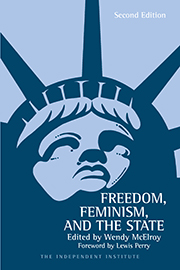Terrorists hope to destroy the social fabric of the West by instilling a paranoia into our lives that makes us turn against each other. It is working.
A new fortress mentality is being stoked by a media that dwells incessantly on every terrorist possibility, on every awful news story from anthrax to Catholic sex scandals. And so, we begin to view each stranger as a threat and each neighbor with suspicion; this growing paranoia on a wide range of issues is separating those in need from those who wish to help.
This Christmas, a little less compassion will spill from my household toward those in need. It is not because my husband and I are less willing to give time to good causes, but because our attempts to do so have been blocked by a fortress mentality.
The ham radio organization to which we belong will not be allowed to set up “SantaNet” in our local woman’s shelter. In past years, a female operator who had been cleared by the shelter authorities was allowed to bring in a rig to contact the North Pole. Children stranded at the shelter over Christmas spoke with Santa, who asked them only pre-approved questions. The mothers were present and consulted at every stage. No one had complained. But, now, for the sake of safety, all strangers are banned from entry to the shelter.
Banning SantaNet protects no one. But it does make our community a little less compassionate.
This may seem like a little thing, but at the risk of repeating a story ... A few years ago three hams were on “Christmas duty” at our community center when a father carried in his 7-year-old son to speak with Santa. The hams took a special interest in the boy: From a pre-interview with the father, they knew the boy, Jim, had not only been ill for months but also that his mother had died the year before. When his time came, the boy sat in his father’s lap and stared at the microphone. The North Pole was contacted. An “elf” named Murray addressed him by name; the boy said nothing. Santa asked Jim about his dog; the boy said nothing.
The next day, the father phoned one of the hams in tears. When father and son were alone in the parking lot, Jim had said, “Daddy, Santa Claus talked to me.” It was the second time Jim had spoken since his mother’s death.
It is not a little thing. The multitude of small acts through which kindness and generosity are expressed are what hold a community together. But now, such acts are being quashed by the fear of hypothetical dangers—a fear that no amount of reasonable precaution seems to extinguish.
Paranoia is increasing everywhere. There are extreme cases, such as the school in England that refuses to let parents videotape their children’s Christmas pageant. Why? Because images from the nativity scene “may get into the hands of pedophiles.” There is no evidence that they will or reasonably might. But the hypothetical possibility exists, so parents must be pre-emptively stripped of the pride and joy that comes with videotaping the performance.
The same fortress mentality recently caused a Kansas mother to be grilled by the police.
Tamie Dragone dropped off a roll of family snapshots for development at a Salina, Kan., Wal-Mart. It contained a topless photo of her 3-year-old daughter in a wading pool and a photo of the girl lying on her stomach, with a bare buttocks. Every family album I’ve seen includes such photographs. The retail giant reported Dragone to the police for possible child pornography. The mother, who was not allowed to keep the photos, is suing Wal-Mart for $75,000.
Paranoia is reaching the level of hysteria. It is creating distrust where none should exist. It is encouraging us to see danger in every shadow and predators beneath our beds.
And I hear the backlash it is causing in people I know. A friend no longer puts an arm around his granddaughter when reading to her: He fears the contact might be misinterpreted. A volunteer no longer works with children because he resents being fingerprinted by the police like a common criminal. Person by person, small act by small act, compassion is being leeched out of society.
This is the “legacy” of terrorism and the brutal crimes that occur in our society, but it is also the legacy of the media who presents these stories without pause or counter-balancing stories, as though brutality and not decency defined our culture. The media is helping to manufacture what may become a self-fulfilling prophecy: A society prepared to wage war on every issue and every front, including against ourselves.
The spirit of charity and community for which North America is renowned is desperately needed. Studies indicate that social problems like homelessness are rising. Meanwhile, some food banks report acute shortages due to a lack of donations. The San Francisco Food Bank, for example, usually has two million pounds of food available at any given time, according to the San Francisco Examiner. “Right now, even during a heavy donation period, there are only 1 million pounds in stock,” the Examiner reported.
This year, my husband and I will channel our efforts toward a local food bank. That’s still something people can do without being viewed with suspicion.









